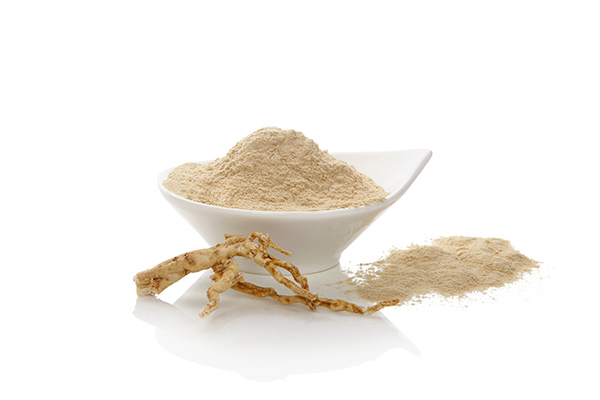-
Home > News & Events > Blog > Human Health
Sports nutrition products, as dietary supplements, are functional foods developed through the combination of physiology, nutrition, and modern biotechnology. They include basic nutrients and functional factors that play an important regulatory and protective role in the human body during exercise.[1] Sports nutrition products can provide targeted nutrition, not only improving the nutritional status of sports lovers but also reducing the metabolic burden of physical activity. Depending on the specific nutrients, sports nutrition products can be divided into energy supplements, energy control types, and protein supplements. Depending on the type of exercise, sports nutrition products can be divided into speed and power, endurance, and post-exercise recovery.

1. Main nutrients of sports nutrition food
1) Carbohydrates
As the main source of energy, low levels of carbohydrates can cause exercise fatigue. Studies have shown that moderate intake of carbohydrate-containing sports nutrition food before exercise can help provide continuous energy for athletes, promote the synthesis and release of insulin, accelerate the oxidation and decomposition of fat, reduce the accumulation of lactic acid caused by anaerobic metabolism of muscle glycogen in the body, eliminate exercise fatigue, and improve the level of athletes' exercise.[2]
2) Protein
Protein is the most important substance foundation for biological reproduction and metabolism. Lack of protein can cause various metabolic disorders in athletes, leading to excessive breakdown of body composition [3]. Protein plays an important role in muscle remodeling, synthesis of glycogen under special circumstances, energy production, and maintenance of non-muscle tissue structure stability. In addition to ensuring adequate intake, the quality, type, and timing of protein intake are also important factors that athletes need to consider.
3) Fat
Fat is the main energy storage form in the body and also the main source of energy for the body. The body's demand for fat energy is positively correlated with exercise time and negatively correlated with exercise intensity. It can be seen that fat has a great impact on the endurance of athletes, and fat can also play a role in keeping warm during exercise.
4) Vitamins
Vitamins are a class of organic substances that regulate energy metabolism and neural processes and relieve cell damage, but cannot provide energy. As coenzymes, B vitamins directly participate in regulating energy reactions such as glycolysis, tricarboxylic acid cycle, oxidative phosphorylation, fatty acid beta-oxidation, and amino acid metabolism, and are the main types of vitamins in sports nutrition foods. In addition, vitamin D and vitamin E are also commonly found in sports nutrition foods.
5) Minerals
Minerals exist in the tissue structure, are important components of enzymes and hormones, and act as regulators of metabolism and neural function. Therefore, athletes usually supplement vitamins and minerals together in order to produce better synergistic effects. For example, supplementing calcium can improve exercise-induced bone injury and increase bone density [4]; supplementing iron can improve the exercise capacity of anemic athletes [5].
6) Other nutrients
According to statistics, sports nutrition supplements mainly include glucosamine, chondroitin, hyaluronic acid, which can protect joint cartilage; taurine, nucleic acid, creatine, which can improve muscle quality; glutamine, Liuwei Dihuang soup, which can regulate endocrine; L-carnitine, caffeine, capsaicin, which can control weight; maltodextrin, carnitine, which can increase energy storage and utilization; allicin, honey pollen, coenzyme Q10, which can enhance immune function [6].
2. Main Problems in the Domestic Sports Nutrition Market
Although the increasing number of people engaging in sports and physical activities has expanded the market for sports nutrition products in recent years, there are still many problems [7]:
(1) potential safety issues have affected the development of sports foods, as there is insufficient research on many nutrients to determine their mechanisms of action and safe dosages;
(2) the imbalance between commodity prices and supply and demand, especially high prices, directly limits consumer purchasing behavior;
(3) serious overall homogenization and lack of innovation;
(4) inadequate enforcement of regulations and relevant standards, leading to frequent market chaos;
(5) the lack of professional and truthful self-media communication has generated many opinions that deviate from the truth.
3. Nutritional value of yeast protein
Yeast protein is usually derived from brewing yeast and is a functional protein that is enriched by removing cell wall polysaccharides and other components through enzymatic hydrolysis. The main components are fungal proteins and yeast metabolites. It is a high-quality natural complete protein, accounting for 40% to 60% of the dry weight of the fungus. Its nutritional value is between whey protein and soy protein, and its content of branched-chain amino acids is higher than that of whey protein [8]. Studies have shown that the advantages of yeast protein are: yeast protein contains all essential amino acids and is a complete protein with rich nutrition that can meet the nutritional needs of the human body; the fermentation process is mature, the manufacturing efficiency is high, and it is suitable for large-scale manufacturing, significantly reducing the amount of water and arable land required; yeast protein has no allergenic components and is suitable for a wide range of people; it has no beany flavor and can enrich the meat flavor [9]. In summary, yeast protein is safe and high-quality and can be an ideal source of protein.
4. Application Prospects of Yeast Protein
Based on the current development status and main problems of domestic sports nutrition food, combined with the nutritional and functional characteristics of yeast protein and its natural advantages, the application advantages of yeast protein in sports nutrition food may include the following:
1) Substitute for whey protein
Whey protein and its hydrolysates are the main source of protein in sports nutrition food due to their amino acid composition being similar to that of the human body, and have positive effects on regulating energy metabolism, relieving exercise fatigue, reducing tissue damage, promoting fat decomposition and post-exercise recovery, and improving exercise ability. Yeast protein, as a high-quality complete protein with a higher content of branched-chain amino acids (BCAAs) than whey protein, has the potential to partially replace whey protein in protein products in sports nutrition food.
Firstly, the cost of yeast protein is lower than that of whey protein, which makes it possible to reduce costs while retaining the nutritional and functional characteristics of the product. Secondly, the increase in protein types is beneficial for better complementary effects. At the same time, yeast protein is a cleaner protein resource, and its production process can produce lower carbon emissions, occupy less farmland, and be more green and sustainable, which is in line with the consumption concept of environmental protection advocates. In addition, yeast protein avoids the possible allergic reactions or religious taboos caused by animal protein.
2) Accelerate muscle protein synthesis
BCAAs, including leucine, isoleucine, and valine, which are essential amino acids (EAAs) abundant in yeast protein, are precursors of muscle protein synthesis and important regulatory factors in the intracellular signaling pathways during protein synthesis. They can promote muscle protein synthesis through the AMPK-mTOR pathway, regulate myogenic regulatory factors (MRF), and improve gut health [10]. Clinical studies have also shown that BCAAs can effectively prevent and alleviate muscle loss [11].
3) Slow digestion
Research shows that yeast protein is a slow-digesting, highly absorbable protein that extends digestion time without affecting utilization rates [12]. Compared to fast-digesting proteins like whey and soy, yeast protein is more beneficial in providing a feeling of fullness. In addition, studies have shown that proteins with different digestion rates regulate postprandial whole-body protein deposition differently. Rapidly digestible proteins can cause a significant but short-term increase in postprandial plasma amino acids and peptides, stimulating protein synthesis but may also increase amino acid oxidation. Conversely, slow-digesting proteins can cause a small but prolonged increase in amino acids and peptides in the plasma after a meal, inhibiting body protein degradation and increasing overall protein retention [13].
In summary, the application prospects of yeast protein in sports nutrition foods mainly include:
(1) Reducing costs;
(2) Enhancing nutritional properties by exerting protein complementarity effects;
(3) Increasing satiety and better promoting muscle protein synthesis while inhibiting breakdown metabolism;
(4) Energy-saving and emission-reducing, while also being cleaner, greener, and more sustainable. In addition, innovation in raw materials provides more choices for the development of new products while upgrading old ones.
| Published by Chen Zhixian Senior Engineer of Nutrition and Health Division |
About Angel Human Health:
Specialized in yeast and fermentation, AHH is committed to developing innovative, differentiated, science-based functional ingredients and customized solutions, to help our customers get enduring success, as well as contribute to a healthier and sustainable world together.
About Angel:
Angel Yeast Company is a high-tech listed company specializing in yeast and biotech. Product business covers Yeast and Baking, Yeast Extract-Savoury, Nutrition & Health and Biotechnology fields. It is one of the world's leading companies in the yeast industry. Angel has 12 holding subsidiaries and provides products and services for more than 150 countries and regions.
Press Contact:
ANGEL YEAST CO., LTD
Address: 168 Chengdong Avenue, Yichang, Hubei 443003, P. R.China
Tel: +86 717 6369570
Email: Nutritech@angelyeast.com








